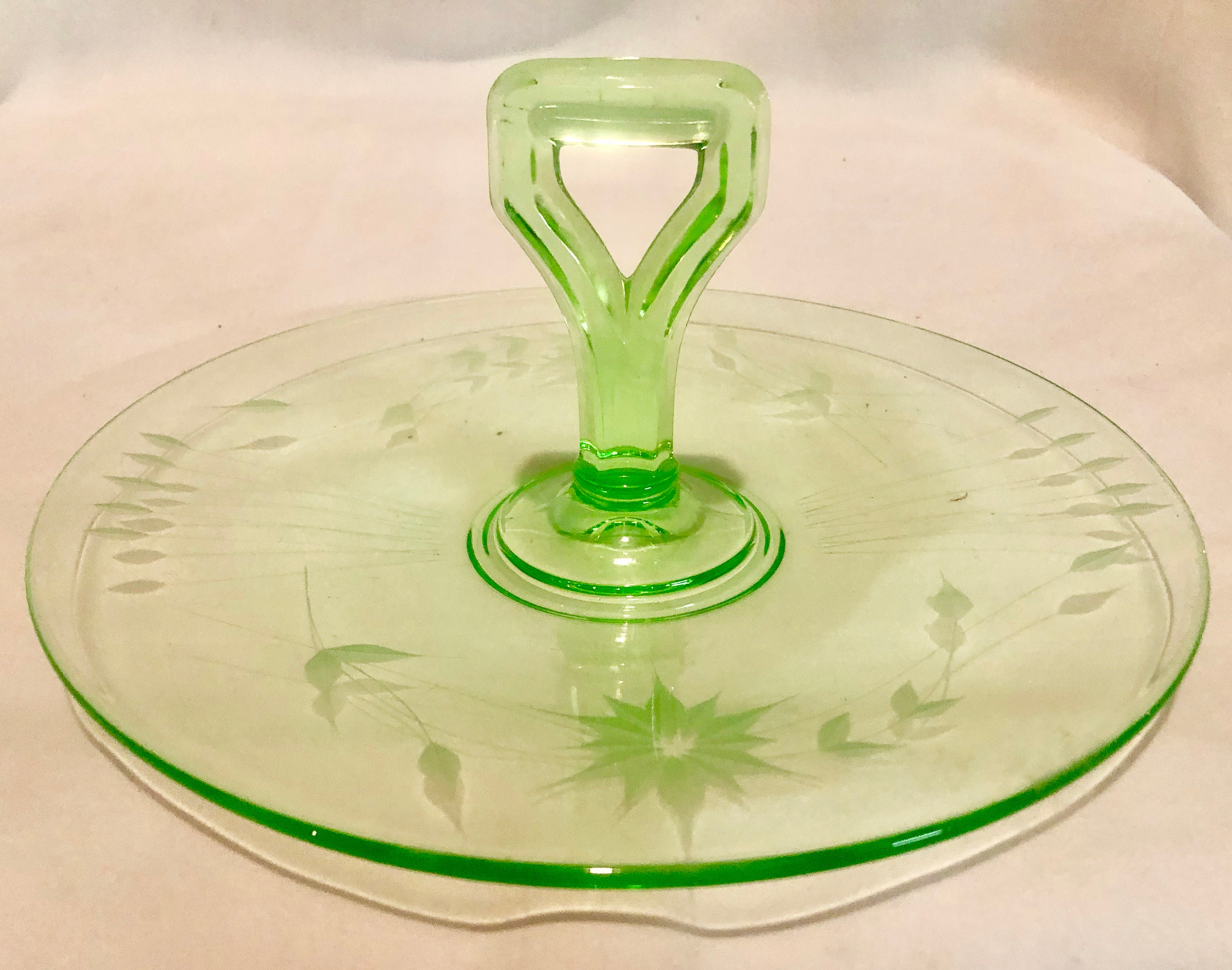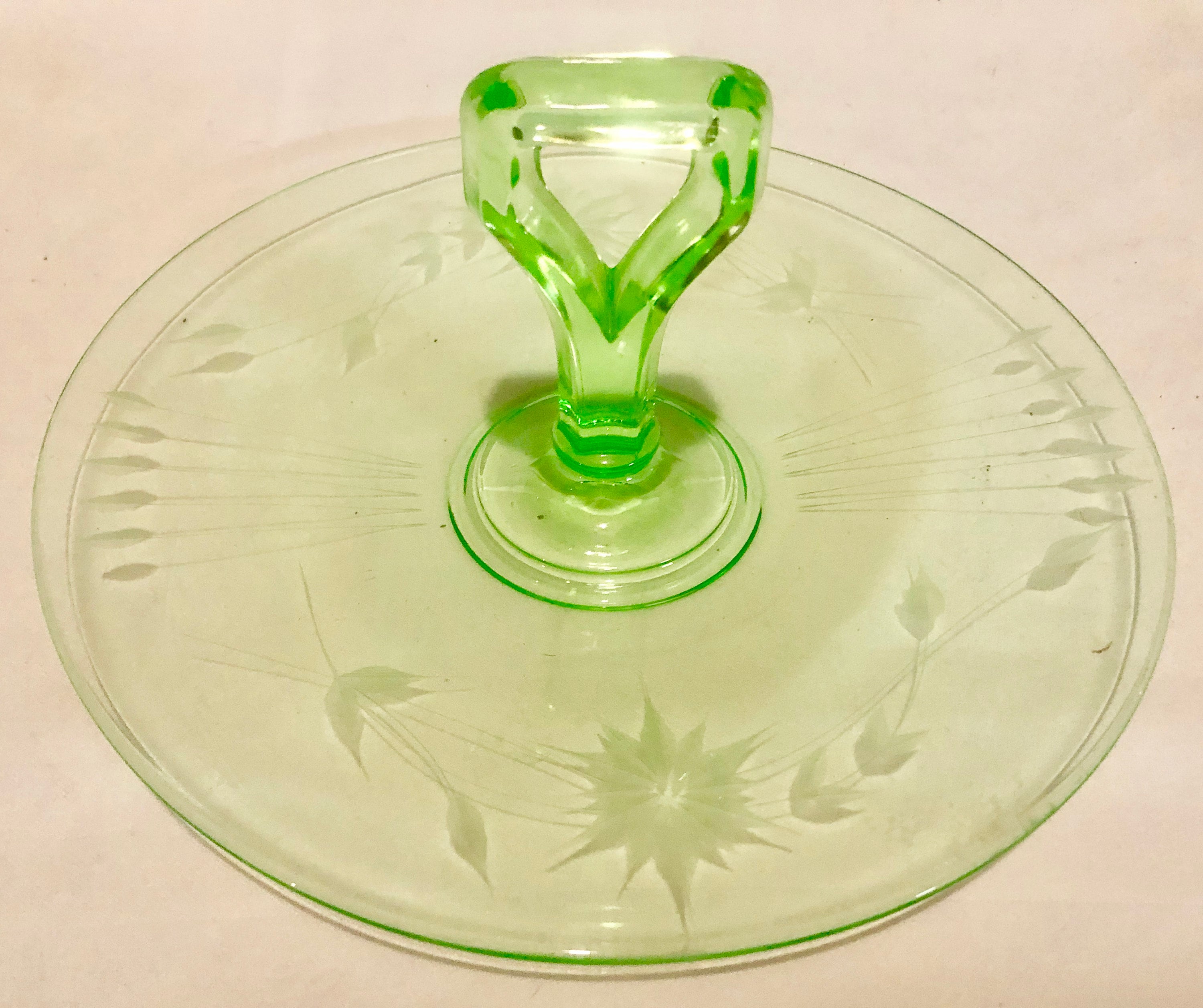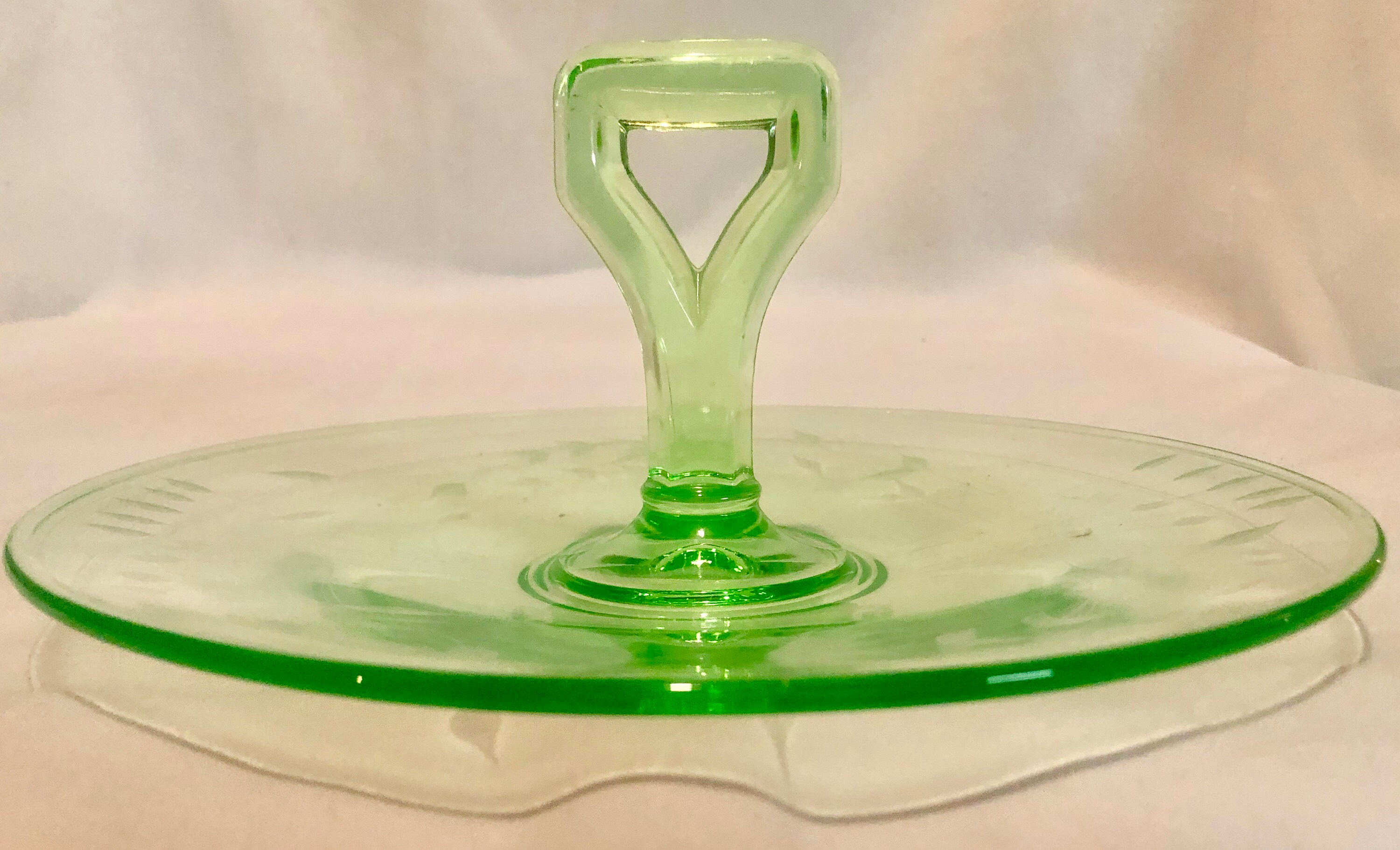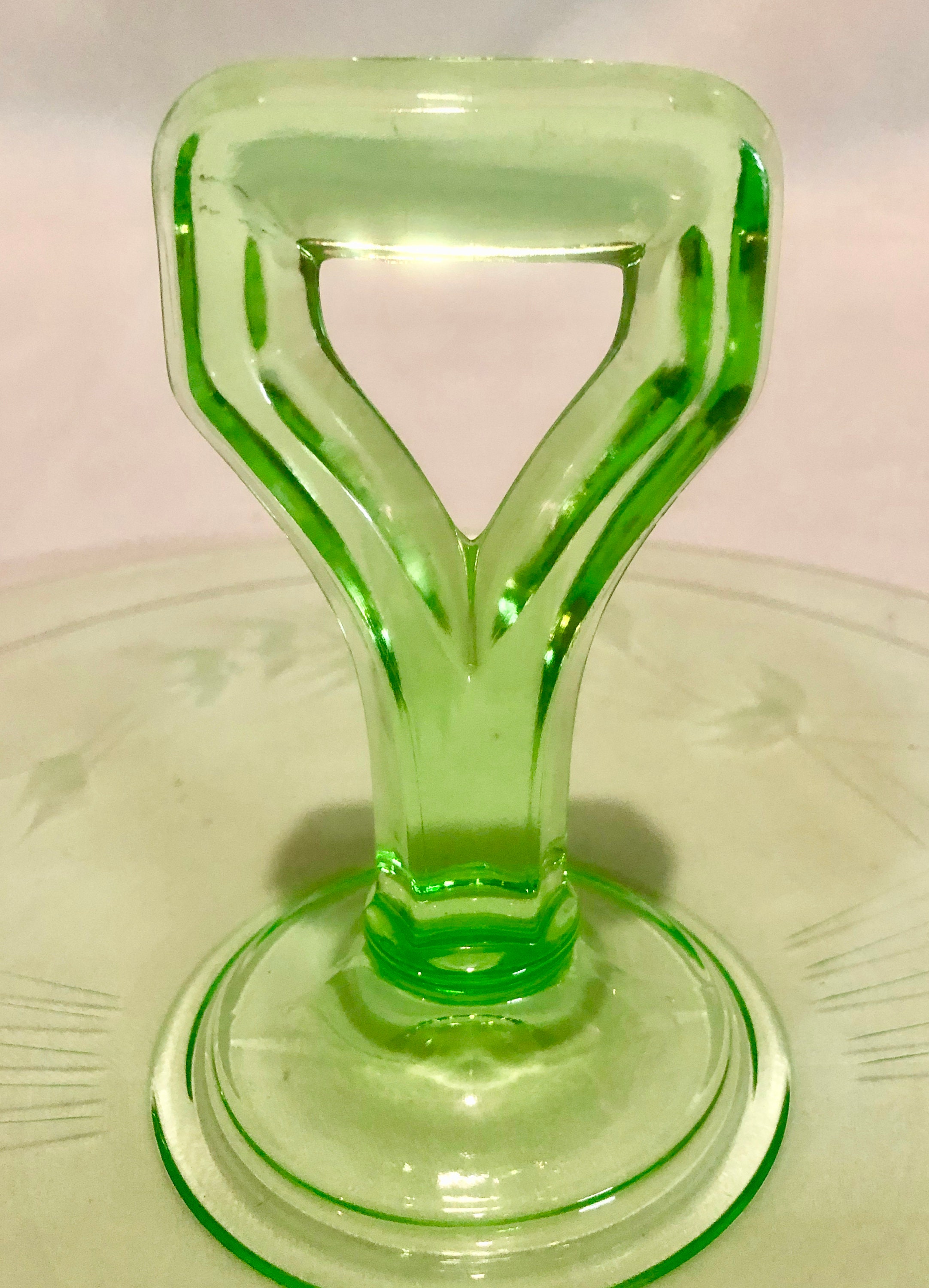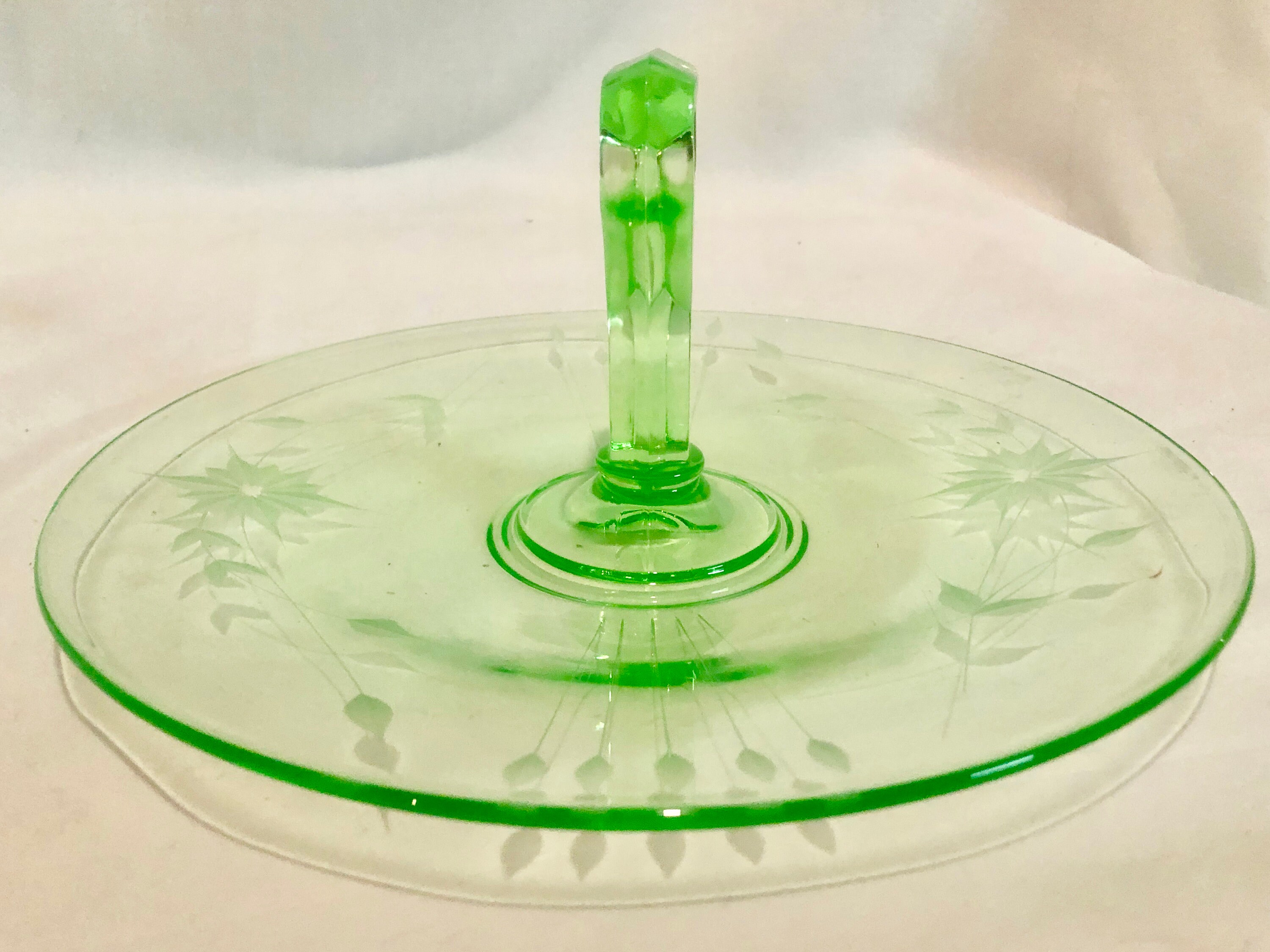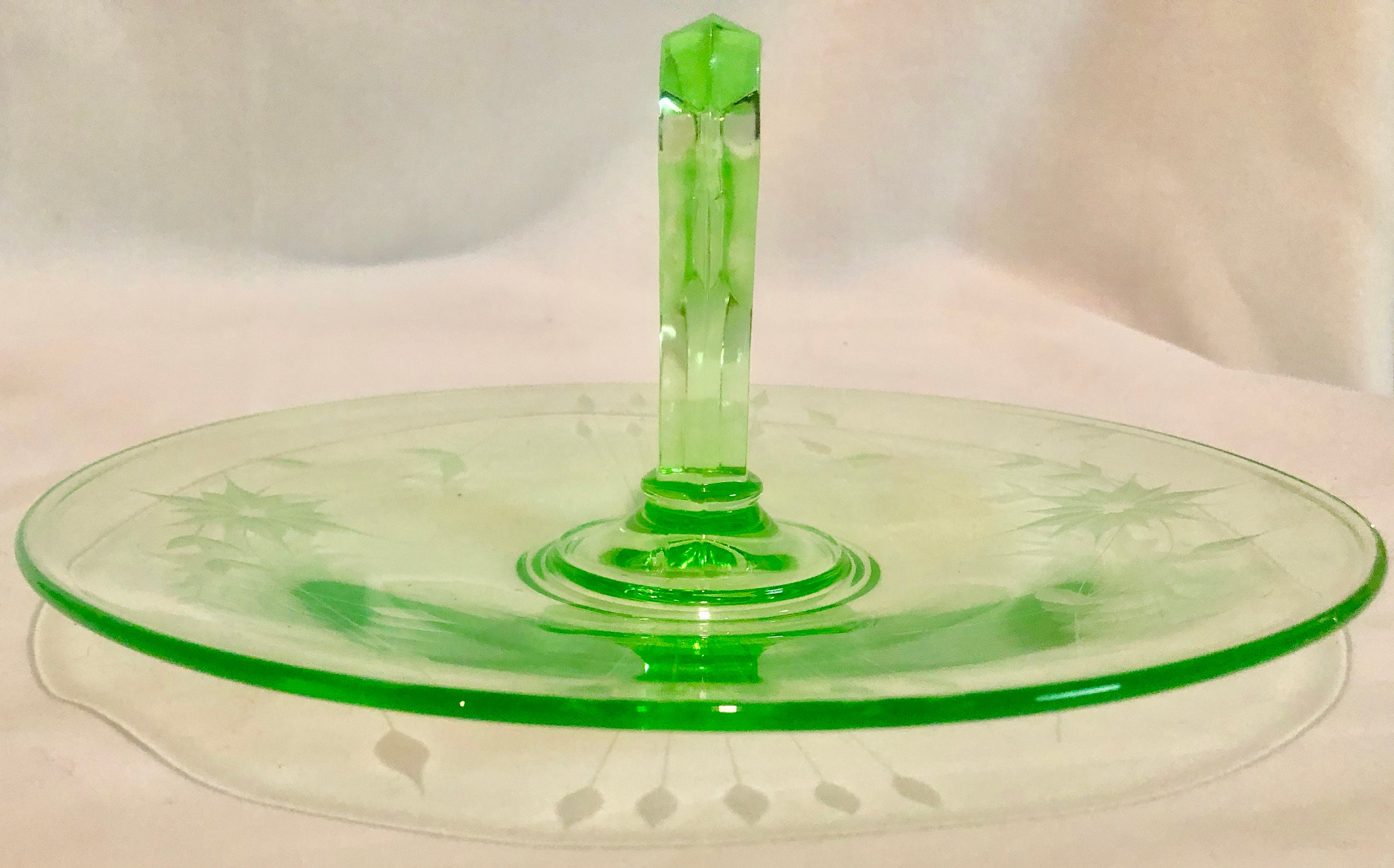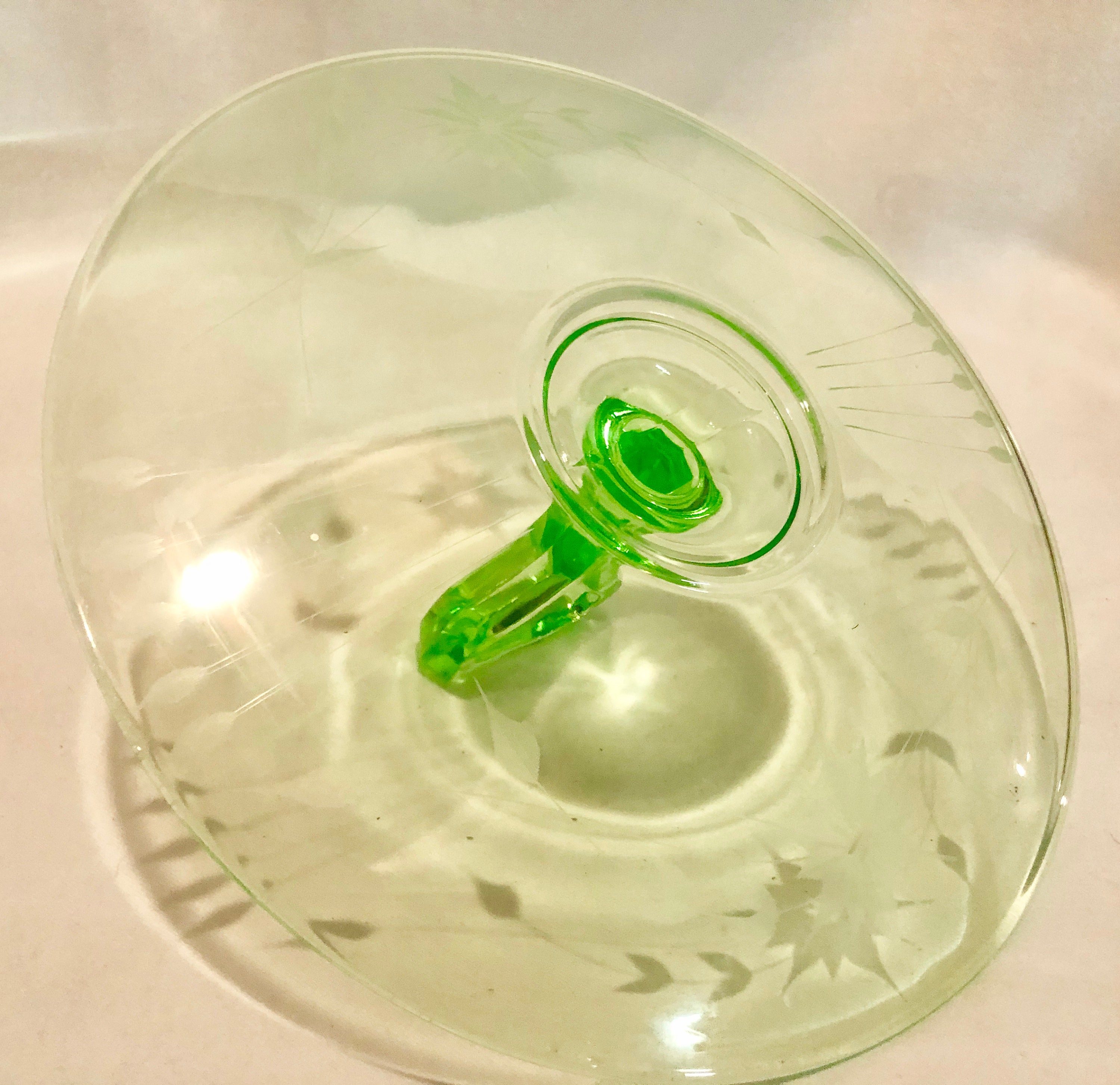Vintage Green Vaseline/Uranium Depression Glass Serving Dish with Handle
This vintage green depression glass serving plate is known as vaseline glass or uranium glass and glows in the dark under uv black light.
It has a round shape with a etched starburst floral pattern.
The handle is sturdy and comfortable to use.
There are no chips or cracks and it measures 4 1/2" x 10" diameter
What is identified as vaseline glass was produced from the mid 1800's through the beginning of World War II, but it's peak of popularity was from 1880's to 1920's. The most typical color of uranium glass is pale yellowish green, which in the 1920's led to the nickname vaseline glass based on a perceived resemblance to the appearance of petroleum jelly.
Like all types of colored glass, minerals are added to the molten mixture during production to achieve the color. The normal color of uranium glass ranges from yellow to green depending on the oxidation state and concentrations of metal ions.
as little as 0.1-0.2 percent of uranium dioxide is added to the formula. Not to worry though, the amount is so minute it doesn't pose a health threat.
Saying times were tough during the Great Depression is nothing less than an understatement. Most Americans that didn’t lose their jobs were often forced to take pay cuts. Learning to live on little or nothing was the way of life for many families for the decade beginning in 1929. Today we recognize many items used in the home during the 1930s as collectibles, including Depression glass.
To those who look beyond the surface and partake in the challenges and triumphs offered, Depression glass is more than just another collection.
It provides an intriguing, interesting hobby rich with history, and it brightens the home along with the spirit just as it did back in the day.
From the late-20's through the early '40s, manufacturers such as Federal Glass, MacBeth-Evans, and Hocking Glass brought a little cheer into some very dreary days by manufacturing the product we now know as Depression glass. This mass-produced molded glassware was of relatively poor quality -- often exhibiting air bubbles, heavy mold marks, and other flaws in the glass -- yet it came in beautiful colors and patterns to suit every taste.
More than twenty manufacturers made more than 100 patterns, and entire dinner sets were made in some patterns. Common colors are clear (crystal), pink, pale blue, green, and amber. Less common colors include yellow (canary), ultramarine, jadeite (opaque pale green), delphite (opaque pale blue), cobalt blue, red (ruby & royal ruby), black, amethyst, monax, and white (milk glass).
The most popular colors with collectors today are pink in varying hues (some are very light in color, while others have an orange tint to the pink), cobalt blue, and green. Depression glass was also made in amber, iridescent, opaque white known as Monax, and several other colors as well. Some of the most popular patterns buyers seek today are Cameo, Mayfair, American Sweetheart, Princess and Royal Lace.
Even the pattern names alluded to better times and a longing for the glamorous lifestyles of the 1920s.
Depression glass was popular and affordable when it was new. The dime store, where the thrifty homemaker could find everything from toiletries to household goods, was a common source for this inexpensive purchase.
At a time when a loaf of bread would set you back about a nickel, frugal shoppers could also buy a piece of Depression glass for around the same price. In fact, there’s a fantastic photograph included in The Collector’s Encyclopedia of Depression Glass by Gene Florence (now out of print but available via used booksellers) showing a Woolworth's window display advertising an Old Colony pattern sherbet dish and under plate "complete" for 10 cents.
Depression glass also made its way into American homes through the issuance of premiums. Sellers or manufacturers would offer a free gift with the purchase of a certain dollar amount of goods or a specific product, and penny-pinching ladies took full advantage of these freebies.
Glass was plucked from an oatmeal box one week, then from a detergent box the next. Sometimes gas stations would throw in a punch bowl and matching set of cups with an oil change. Movie theaters got in on the action offering a piece of glass with a ticket to a Saturday matinee. You might even hear old timers refer to some of these pieces as "oatmeal glass" due to their origin.
Shipping from United States
Processing time
1-3 business days
Estimated shipping times
- United States : 2 - 3 business days
I'll do my best to meet these shipping estimates, but can't guarantee them. Actual delivery time will depend on the shipping method you choose.
Customs and import taxes
Buyers are responsible for any customs and import taxes that may apply. I'm not responsible for delays due to customs.
Payment Options
Returns & Exchanges
I gladly accept cancellations
Frequently Asked Questions
Are these new items?
All items in my shop are vintage and antique meaning previously owned, loved and used.
I will disclose any condition issues to the best of my ability in the item description and ask that you review pictures and description prior to purchase.
Please contact me - I'll be happy to clarify and answer any questions.
Do you accept returns?
I do not accept returns or apply refunds
Please review item description and pictures prior to purchase or contact me with any questions
I’ll gladly provide any additional
information
If it is agreed upon between the seller and buyer that an item will be returned,it is the responsibility of the buyer to pay for return shipping. Once the item is received to the seller a refund of the purchase price only will be applied to the buyers account.
I ship quickly -1-3 business days-so I will only except a cancellation within 24 hours of purchase since I will be preparing the item for shipment in order to expedite your purchase
Why are shipping costs so high?
The shipping cost is determined by the postal service which is described below Due to the various sizes and weights of the items in my shop I unfortunately cannot offer free shipping
I utilize the USPS for shipping all packages and have found them to be the most economical and reliable
USPS has discontinued Regional Rate Box prices. This means that this mail class is no longer available
USPS uses Cubic Pricing rates which are determined by package dimensions and distance traveled instead of weight
